4th Collaboration! What Brought the Global Laser Academic Guru to Chinese Univs & Leading Firms?
source:Laserfair.com
keywords:
Time:2025-11-21
Source: Laserfair.com 17th Nov 2025
On November 1, 2025, Ferenc Krausz — the 2023 Nobel Prize laureate in Physics, hailed as the "father of attosecond physics" — delivered an academic lecture at Chongqing University, offering a feast of cutting-edge academic insights to over 400 teachers and students.
Behind this pioneering sharing lies an in-depth integration between this international laser luminary and China's scientific and technological community. From leading laser enterprises to top universities and Grade A tertiary hospitals, the prominent figure in the global laser field is integrating into China's innovation ecosystem in multiple capacities.

In fact, as a pioneer in attosecond laser technology, Professor Krausz has collaborated with China four times within this year: in April, he was appointed Chief Scientific Advisor to Ultron Photonics, a leading domestic femtosecond laser enterprise; in January, he accepted the honorary professor positions at two Chinese universities and research institutions, namely Qilu University of Technology and Changchun University of Science and Technology; and in August, he became a visiting professor at the Three Gorges Hospital Affiliated to Chongqing University.
From universities to enterprises and further to clinical frontlines, this top scholar in the global laser field is integrating into China's innovation system in multiple capacities, launching "full-chain cooperation" spanning academia, industry, and medical care.
A Pioneering Initiative
Nobel Laureate's First Collaboration with a Domestic Leading Laser Enterprise
On April 30, 2025, Professor Ferenc Krausz embarked on his first corporate cooperation journey in China's femtosecond laser sector at the invitation of Ultron Photonics (Hangzhou) Co., Ltd. This marks not only Professor Krausz's first appointment as a technical advisor to a Chinese femtosecond laser enterprise but also the first strategic cooperation between a Nobel Prize-level scientist and a Chinese femtosecond laser company.
Centered on "academic exchanges + strategic appointment," Ultron Photonics has become the first femtosecond laser enterprise in China to cooperate with a Nobel Prize-level scientist.

At the appointment ceremony, Qiu Hangkai, Chairman and CEO of Ultron Photonics (Hangzhou) Co., Ltd., presented Professor Ferenc Krausz with the letter of appointment as "Honorary Chief Scientific Advisor." Professor Ferenc Krausz stated that Ultron Photonics' breakthroughs in the independent R&D and production of core components as well as cost control have set a model for the popularization of femtosecond lasers, and he looks forward to promoting the extension of this technology to fields such as medical diagnosis through cooperation.
On the afternoon of the same day, Professor Ferenc Krausz and his entourage also visited Ultron Photonics' manufacturing center and expressed high recognition for its high-power femtosecond lasers and the future fully automated production line strategy. The two parties reached an agreement to jointly tackle key problems in the development of femtosecond laser medical equipment and promote its clinical transformation in early cancer screening in the future.
This cooperation is not only a transfer of Nobel Prize-level intellectual resources to the East, but also sends a strong signal of "technological self-reliance" for China's high-end femtosecond laser equipment.
Academic Collaboration
Top-tier Wisdom Empowers China's University Research System
While cooperating with the industrial sector, Professor Ferenc Krausz has also turned his attention to China's institutions of higher education, aiming to jointly cultivate the next generation of scientific research talents and enhance the level of basic research through in-depth cooperation.
In January 2025, Professor Krausz successively visited Changchun University of Science and Technology and Qilu University of Technology (Shandong Academy of Sciences), and was appointed honorary professor and chief scientist of both universities.

On January 23, 2025, Professor Krausz visited Qilu University of Technology (Shandong Academy of Sciences) and was appointed Honorary Chair Professor of the university (academy) as well as Chief Scientist of the Laser Research Institute of Shandong Academy of Sciences. Through this cooperation, the two parties will carry out joint research on cutting-edge fields such as high-power ultrafast lasers and attosecond laser physics, providing intellectual support for the high-quality development of the laser industry in Shandong Province and even the whole country.

Previously, on January 16, 2025, Professor Krausz had visited Changchun University of Science and Technology and was appointed Honorary Professor of the university. President Hao Qun stated that he hopes to leverage Professor Krausz's global influence to drive breakthroughs in the university's physics discipline development, innovative talent cultivation, and high-level scientific research. For his part, Professor Krausz praised the level of laboratory construction at Changchun University of Science and Technology and expressed expectations for promoting the establishment of long-term cooperation mechanisms between the university and top scientific research institutions in Germany, Hungary, and other countries.
These two appointments not only reflect Professor Krausz's recognition of China's laser research capabilities but also build a high-end bridge for Chinese universities to deeply participate in international cutting-edge technological competition.
Medical Empowerment
Attosecond Technology Opens New Doors for Early Cancer Screening
On November 1, 2025, Professor Ferenc Krausz delivered an academic report entitled Attosecond Physics and Infrared Molecular Fingerprinting: Reshaping the Future of Early Cancer Screening and Precision Medicine at Chongqing University. The lecture not only showcased the latest research achievements in attosecond laser pulse technology but also explored its application potential in medical diagnosis, inspiring teachers and students' enthusiasm for interdisciplinary exploration.

Prior to this, on August 28, 2025, Professor Ferenc Krausz officially became a Visiting Professor at the Three Gorges Hospital Affiliated to Chongqing University. By introducing attosecond laser pulse technology, he will assist in the early tumor diagnosis work in the Three Gorges Reservoir area, improve the accuracy and accessibility of cancer screening, and benefit the general patients. Furthermore, Professor Ferenc Krausz will visit the Three Gorges Hospital twice a year to provide guidance on the construction of the Nobel Prize Workstation.
Earlier, the Three Gorges Hospital had established the country's first "Center for Early Tumor Diagnosis and Treatment," which realizes ultra-early assessment of precancerous lesions relying on the CTCs pathological diagnosis and AI platform. Professor Krausz's team's attosecond laser pulse technology, with its ultra-high sensitivity, can capture weak signals from cancerous cells, enabling non-invasive and low-cost early screening. Its principle is to identify early cancer biomarkers by analyzing blood molecular "fingerprinting," which is more efficient and accurate than traditional detection methods.
The Three Gorges Hospital stated that the combination of attosecond technology and the existing center will promote a leap in the accuracy and accessibility of early tumor screening, benefiting tens of millions of people in the Three Gorges Reservoir area. As early as May 2024, the two parties had jointly built the first phase of the Nobel Prize Workstation. In the future, they will focus on technology transformation and may expand it into a universal platform for early diagnosis of multiple diseases.
The Value of Attoseconds
Top-tier Brains Activate China's Technological Innovation Genes
In fact, Professor Krausz's "China footprint" reflects China's scientific and technological community's thirst for cutting-edge technologies and the continuous optimization of its innovation ecosystem.
For the laser industry, the cooperation with Ultron Photonics has broken the barrier between "basic research and industrial transformation," accelerating the application of femtosecond lasers from laboratories to medical care, semiconductors, and other scenarios, and helping China seize the right to speak in the global ultrafast optics track.
For universities, his appointments at Qilu University of Technology and Changchun University of Science and Technology have not only enhanced the international influence of their disciplines but also promoted the alignment of quantum physics, laser technology, and other fields with world frontiers through joint talent cultivation and research tackling key problems.
For the medical field, the cooperation with the Three Gorges Hospital has created a new paradigm of "physics technology + medical application," and attosecond pulse technology may become a "disruptive tool" for early cancer screening.
From enterprises to universities and then to hospitals, Professor Krausz's in-depth participation is a vivid illustration of China's strategy of "gathering talents from all over the world and making use of them." It also provides a replicable path of "top-tier intellectual resources + local practice" for technological self-reliance and self-improvement, transforming "China's opportunities" into "China's solutions" that lead the future.
Professor Ferenc Krausz Profile
Born in Hungary in 1962, he earned his doctoral degree in Laser Physics from the Department of Electrical Engineering at Vienna University of Technology in Austria in 1991. Since 2004, he has served as Director of the Max Planck Institute of Quantum Optics (MPQ) in Germany and Chair of Experimental Physics - Laser Physics at the Faculty of Physics, Ludwig Maximilian University of Munich (LMU) in Germany. Hailed as the "father of attosecond physics," Professor Ferenc Krausz’s research areas include: ultrashort pulse laser technology, attosecond physics, high-field physics, development of laser systems, Petawatt Field Synthesizer (PFS), nonlinear optics, atomic physics, plasma physics, and X-ray physics. He is a member of several national academies of sciences, including the Hungarian Academy of Sciences, Austrian Academy of Sciences, German National Academy of Sciences Leopoldina, and Russian Academy of Sciences. In 2023, he was awarded the Nobel Prize in Physics.
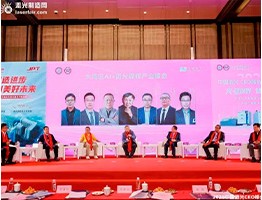 GBA High-Standard Summit Addresses Four AI+Laser Welding Core Propositions
GBA High-Standard Summit Addresses Four AI+Laser Welding Core Propositions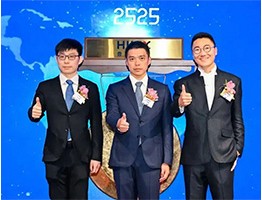 Three Co-founders of a Leading Domestic LiDAR Maker Co-found a Robotics Firm
Three Co-founders of a Leading Domestic LiDAR Maker Co-found a Robotics Firm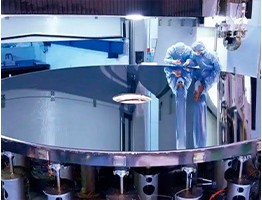 High-Efficiency Conversion Feeds R&D! Optoelectronic HOPE Model Builds a New Industrial Engine
High-Efficiency Conversion Feeds R&D! Optoelectronic HOPE Model Builds a New Industrial Engine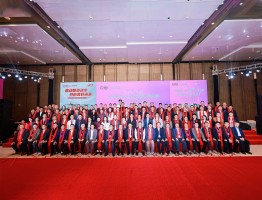 Four-Meeting Linkage: China Laser CEO Shenzhen Night Shines Bright
Four-Meeting Linkage: China Laser CEO Shenzhen Night Shines Bright Lead the Intelligent Welding Revolution: Greater Bay Area AI + Laser Welding Summit
Lead the Intelligent Welding Revolution: Greater Bay Area AI + Laser Welding Summit
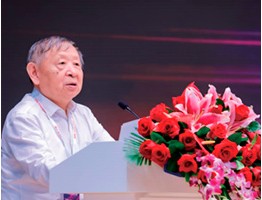 Father of Shenguang Facility: Building Three Generations of National Strategic Equipment
Father of Shenguang Facility: Building Three Generations of National Strategic Equipment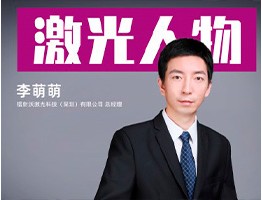 LASERVALL's Li Mengmeng: A Leader in Laser Solder Ball Welding, Deep in Automated Niche Sectors
LASERVALL's Li Mengmeng: A Leader in Laser Solder Ball Welding, Deep in Automated Niche Sectors Intelligent Scientific Systems: Leading Domestic Ultrafast Imaging, Redefining Visual Perception
Intelligent Scientific Systems: Leading Domestic Ultrafast Imaging, Redefining Visual Perception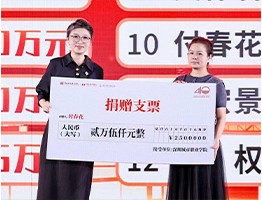 From Rural Girl to Laser Helmsman: Fu Chunhua's Light-Chasing Journey
From Rural Girl to Laser Helmsman: Fu Chunhua's Light-Chasing Journey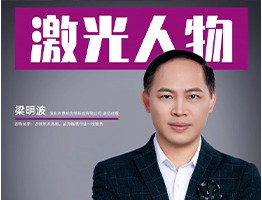 Scanner Optics: Galvanometer Tech Leader
more>>
Scanner Optics: Galvanometer Tech Leader
more>>
